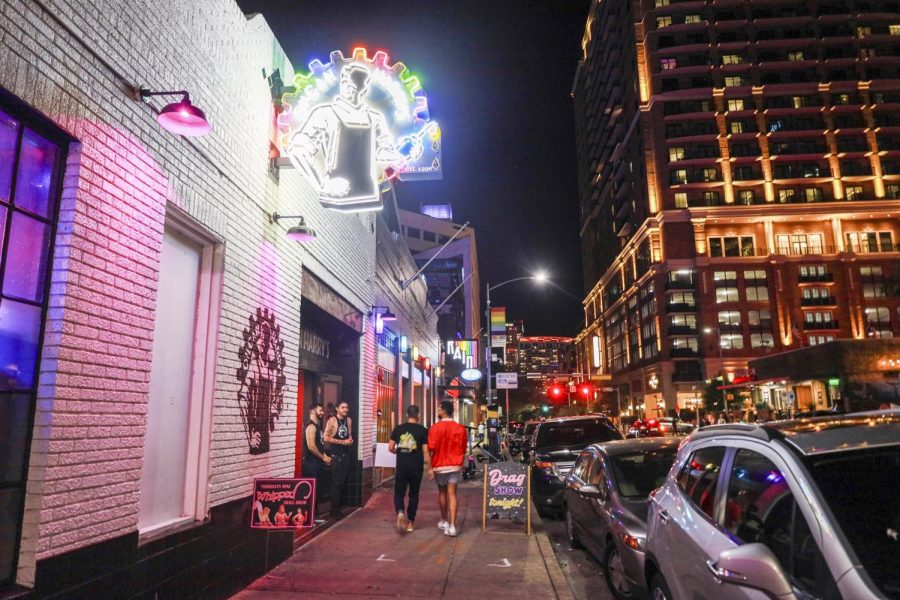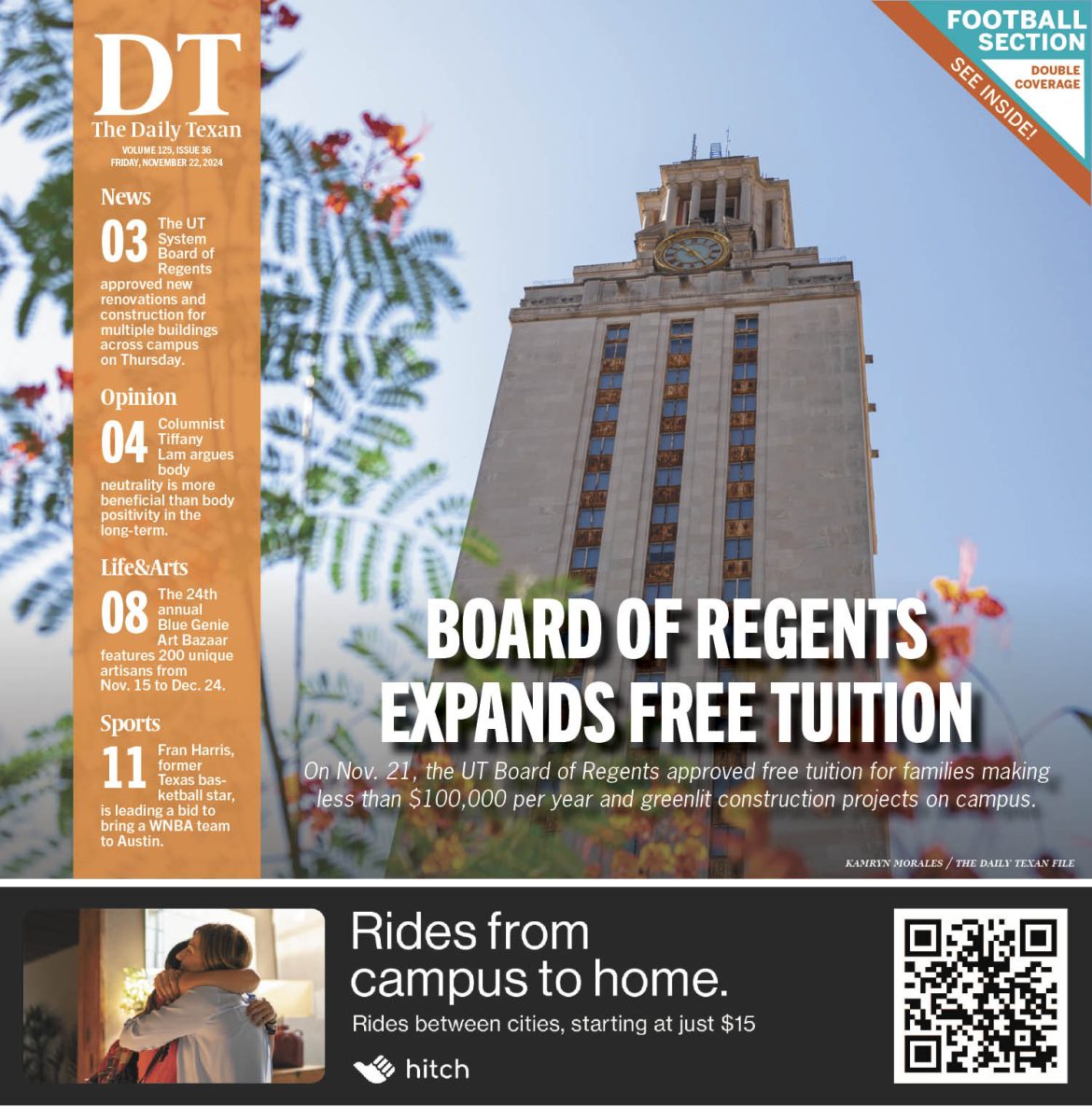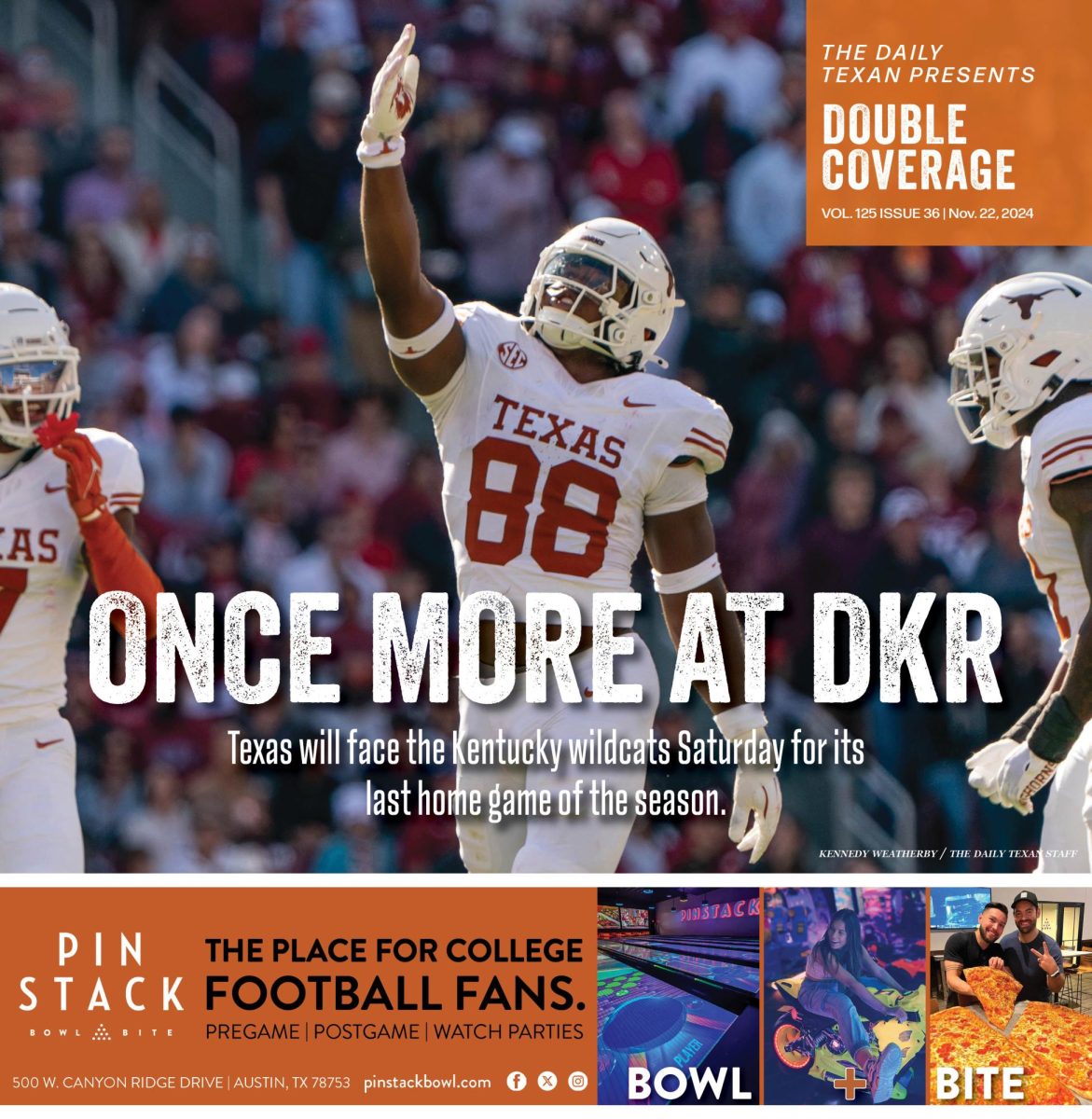UT students share thoughts on possible demolition of landmark LGBTQ+ bars
May 2, 2022
Last week, Levi Casias visited Coconut Club for the first time to bask in the venue’s large neon sign and reverberating dance music. Though excited, Casias said a sobering realization overshadowed his first visit — the outdoor bar risks demolition from incoming developers.
“Austin is such a welcoming and safe space for queer people,” the radio-television-film junior said. “To have (queer) spaces taken away is just another thing that is hindering the LGBTQ+ community in Texas.”
Earlier this month, private real estate firm Hanover Co. proposed a development plan for a mixed-use high rise from 201 to 213 W. 4th Street. The proposed development would occupy the Fourth Street corner home to many historic LGBTQ+ bars, including Oilcan Harry’s, Coconut Club and Neon Grotto. Currently, this area welcomes the queer Austin community with rainbow-painted crosswalks and flying pride flags. If approved by Austin’s Historic Landmark Commission, these plans would drastically transform the block from a beloved Austin landmark to a commercial hub.
When Casias turned 21, he began frequenting Oilcan Harry’s — a Fourth Street resident bar that has provided a safe space for the Austin LGBTQ+ community for the past 32 years. After growing up in a suburb of San Antonio, Casias said he found relief in moving to a city that took pride in its queer residents.
“The first time I went (to Fourth Street) was shortly after they installed the rainbow walkway,” Casias said. “Me and my friends had wanted to go to a drag show for forever. (News of the demolition) really made me upset because Fourth Street is such a safe space for me and other LGBTQ+ individuals.”
Casias said he frequently seeks out parties off campus, primarily on Fourth and Red River Street, because he finds on-campus parties less inclusive of LGBTQ+ students. Casias said he sees the demolition as another obstacle to comfortably going out with friends.
“I have my spaces,” Casias said. “I have Fourth. I have other small organizations where I’m comfortable. I don’t want to have that possibility where I could be in an unsafe space.”
While developers included plans to relocate and preserve Oilcan Harry’s, other bars were not so lucky. Ava Motes, a journalism and Plan II freshman who works at a restaurant across the street from Oilcan Harry’s, said she feels concerned for the job security of her fellow restaurant workers on Fourth Street. In a city that promotes itself as a welcoming place for LGBTQ+ people, Motes said she feels the demolition goes against the principles that Austin promises its residents.
“(The development) is catering to a more affluent demographic of the city,” Motes said. “I think a lot of people who belong to that demographic want to live in an urban environment, but they don’t want the realities of urban life. They don’t want to coexist with … overt queerness around them.”
For many students, Fourth Street offers a safe haven for queer expression. Studio art freshman Olivia Ceasar said she feels the city of Austin should protect places of solace for the local LGBTQ+ community, but ultimately feels the demolition is out of her hands.
“Whenever you step into Coconut Club, no one is afraid to express who they are,” Ceasar said. “Fourth was my place, and once it’s gone, I don’t know where I’m really going to go.”





